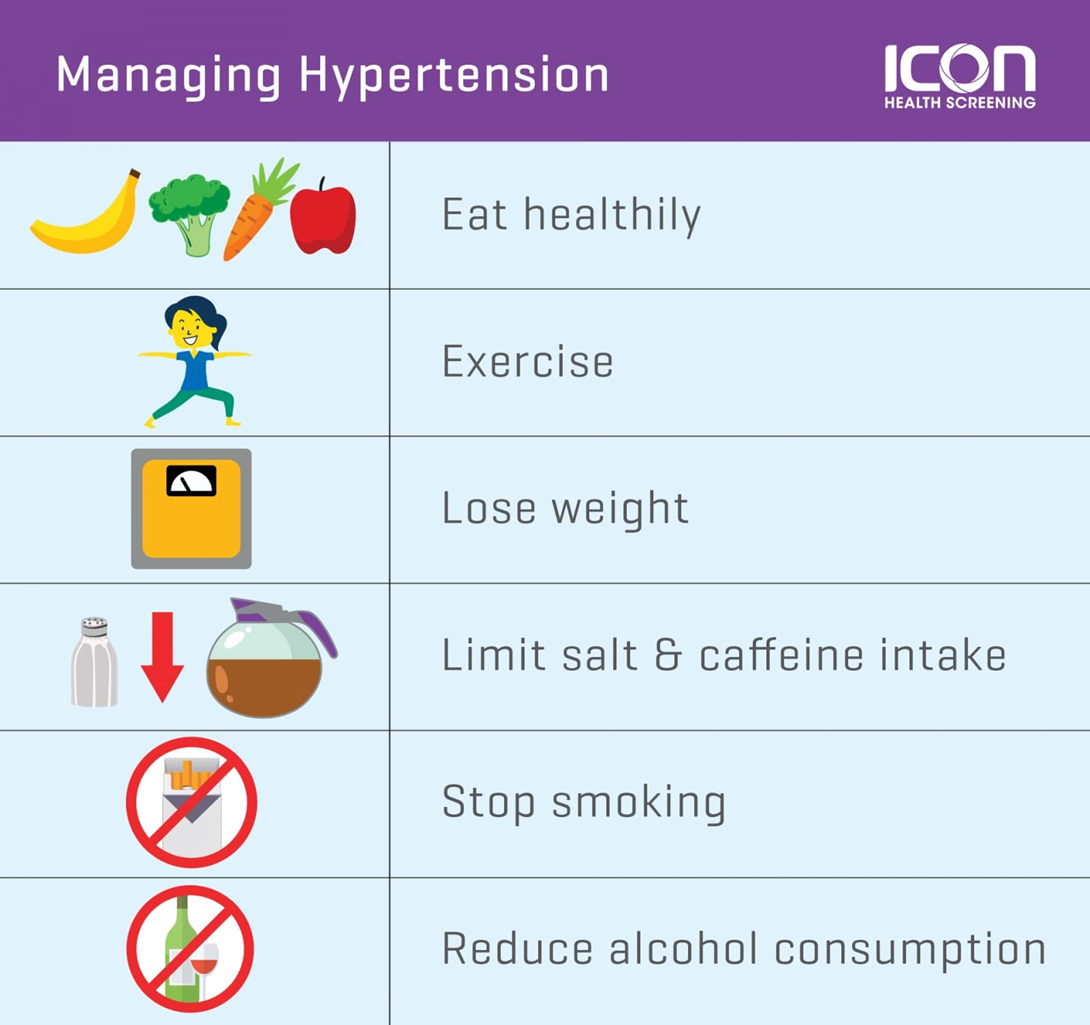The nurse is educating a client about essential hypertension prevention. Which information should the nurse provide? (Select all that apply)
Alcohol consumption will not produce vascular changes.
Weight management is promoted by taking daily walks for thirty minutes.
Salt substitutes can help with maintaining a healthy diet.
Blood pressure readings should be taken at noontime.
Sodium intake can be regulated by rinsing canned foods in water.
Uncontrolled hypertension can lead to renal damage.
Correct Answer : B,C,E,F
Choice B reason: weight management is an important factor in preventing and controlling hypertension. Taking daily walks for thirty minutes can help reduce weight and lower blood pressure.
Choice C reason: salt substitutes can help with maintaining a healthy diet by reducing sodium intake. Sodium intake is associated with increased blood pressure and should be limited to less than 2,300 mg per day.
Choice E reason: sodium intake can be regulated by rinsing canned foods in water. Canned foods often contain high amounts of sodium as a preservative and rinsing them can remove some of the excess sodium.
Choice F reason: uncontrolled hypertension can lead to renal damage. Hypertension can cause damage to the blood vessels and impair the function of the kidneys, leading to chronic kidney disease or failure.
Choice A reason: alcohol consumption can produce vascular changes that increase blood pressure. Alcohol intake should be limited to no more than one drink per day for women and two drinks per day for men.
Choice D reason: blood pressure readings should not be taken at noontime. Blood pressure readings should be taken at the same time each day, preferably in the morning before breakfast or in the evening before dinner.

Nursing Test Bank
Naxlex Comprehensive Predictor Exams
Related Questions
Correct Answer is C
Explanation
Choice A reason: Notifying the healthcare provider is an important action, but not the first one. The nurse should prioritize interventions that address the client's immediate needs, such as oxygenation and circulation.
Choice B reason: Preparing a continuous heparin infusion per protocol is an appropriate action for preventing further clot formation and reducing the risk of recurrent pulmonary embolism, but it is not the first action. The nurse should first stabilize the client's condition before administering anticoagulant therapy.
Choice C reason: This is the correct answer because providing supplemental oxygen is the first action that the nurse should take to improve the client's oxygenation and reduce hypoxia. Pulmonary embolism can cause impaired gas exchange and respiratory distress, which can lead to cardiac arrest and death if not treated promptly.
Choice D reason: Bringing the emergency crash cart to the bedside is a prudent action, but not the first one. The nurse should prepare for possible cardiopulmonary resuscitation (CPR) in case of cardiac arrest, but should first attempt to prevent it by providing oxygen and other supportive measures.
Correct Answer is ["A","D","E"]
Explanation
Choice A reason: Obtaining postoperative vital signs for a client one day following unilateral knee arthroplasty is a nursing action that the nurse can assign to the PN, as this is a basic skill that does not require complex judgment or intervention by the registered nurse. Therefore, this is a correct choice.
Choice B reason: Starting the second blood transfusion for a client twelve hours following a below knee amputation is not a nursing action that the nurse should assign to the PN, as this is an advanced skill that requires close monitoring and evaluation by the registered nurse. This is an incorrect choice.
Choice C reason: Initiating patient controlled analgesia (PCA) pumps for two clients immediately postoperatively is not a nursing action that the nurse should assign to the PN, as this involves administering controlled substances and assessing pain levels, which are beyond the scope of practice of the PN. This is another incorrect choice.
Choice D reason: Performing daily surgical dressing change for a client who had an abdominal hysterectomy is a nursing action that the nurse can assign to the PN, as this is a routine task that can be done under the supervision and direction of the registered nurse. Therefore, this is another correct choice.
Choice E reason: Administering a dose of insulin per sliding scale for a client with type 2 diabetes mellitus (DM) is a nursing action that the nurse can assign to the PN, as this is an established protocol that can be followed by the PN with appropriate documentation and reporting. Therefore, this is another correct choice.
Whether you are a student looking to ace your exams or a practicing nurse seeking to enhance your expertise , our nursing education contents will empower you with the confidence and competence to make a difference in the lives of patients and become a respected leader in the healthcare field.
Visit Naxlex, invest in your future and unlock endless possibilities with our unparalleled nursing education contents today
Report Wrong Answer on the Current Question
Do you disagree with the answer? If yes, what is your expected answer? Explain.
Kindly be descriptive with the issue you are facing.
